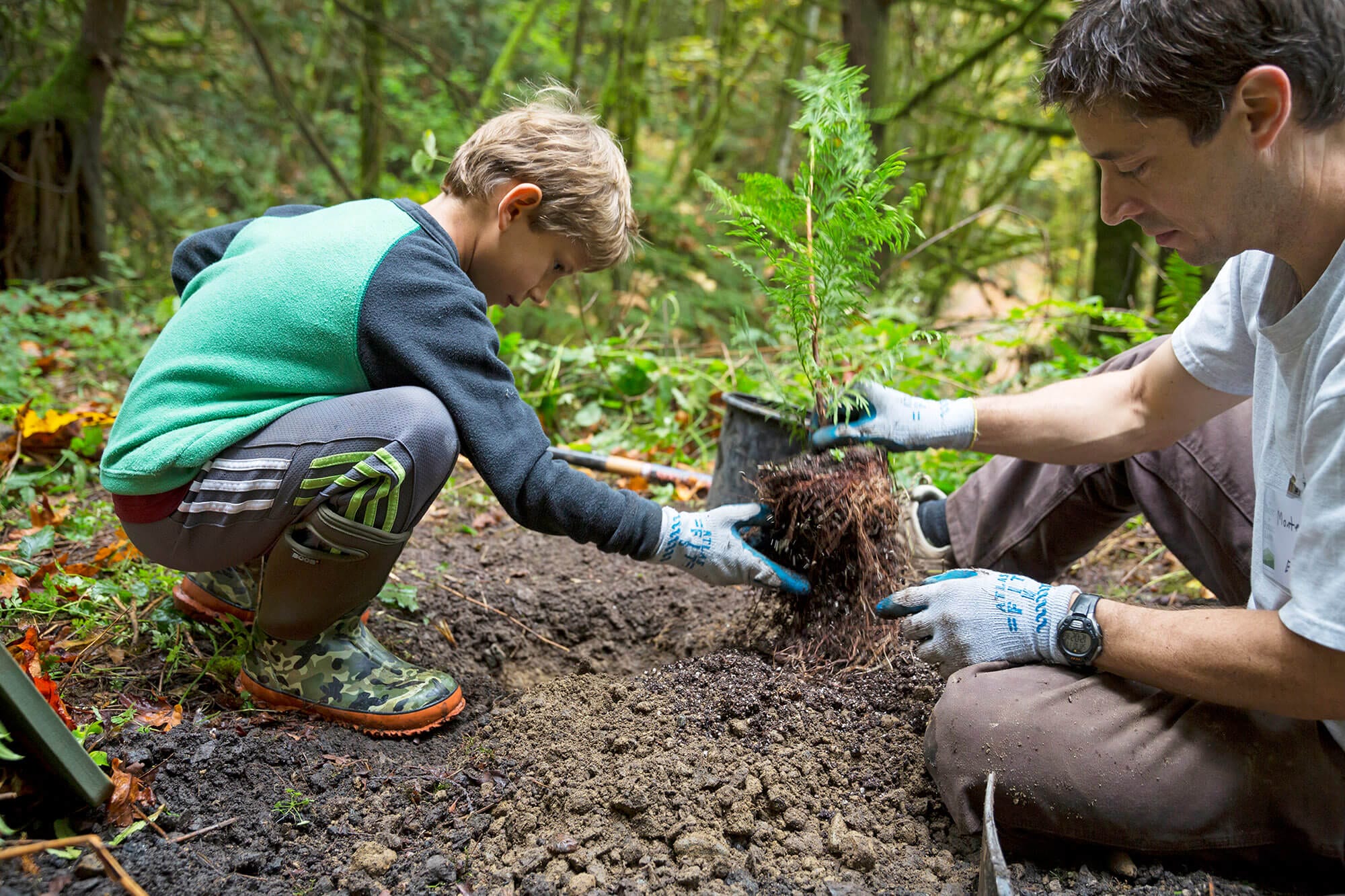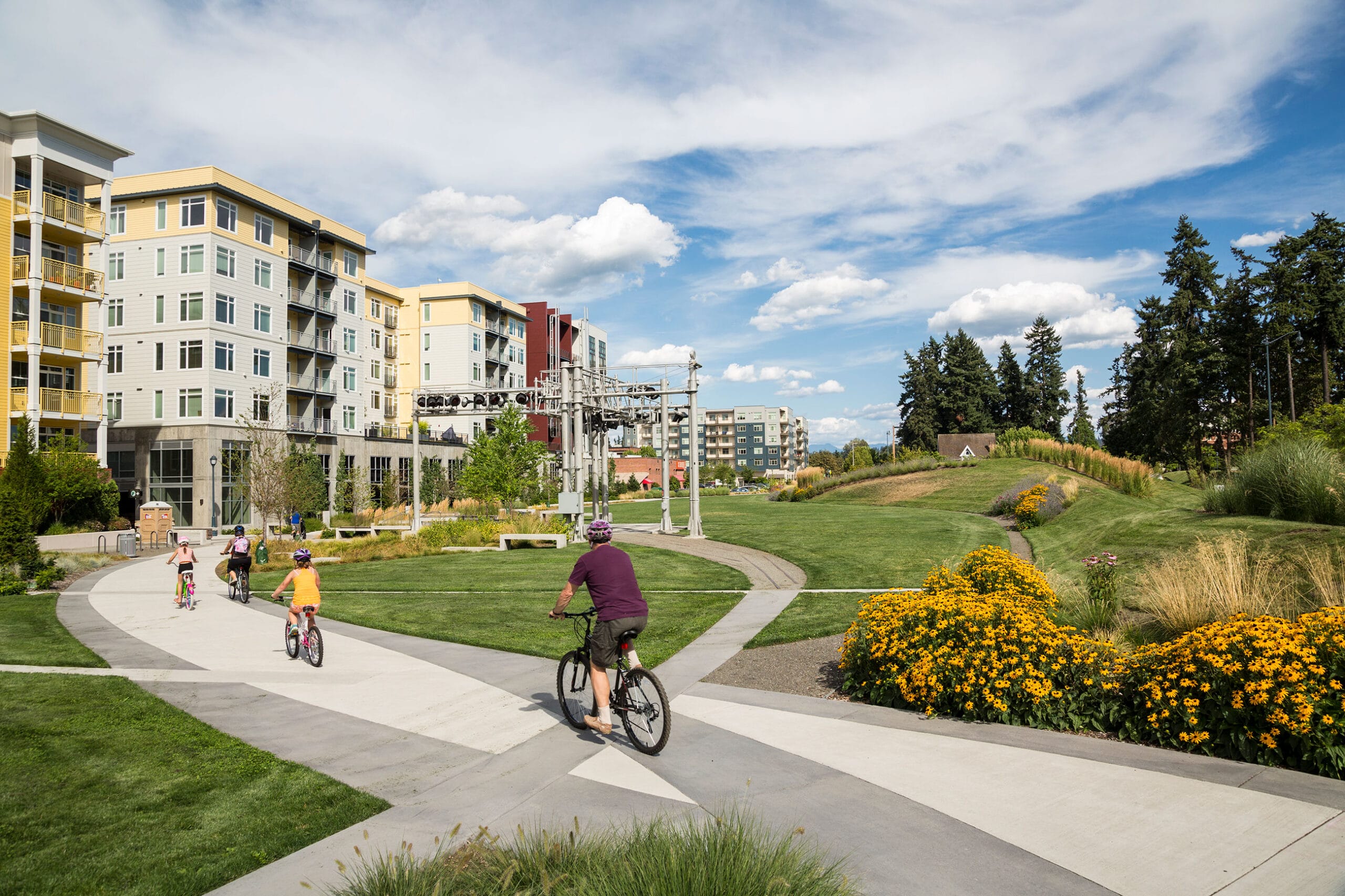
For more than 45 years, we have worked with cities to help make vulnerable communities more equitable, livable, and resilient to the effects of climate change. Through our Climate-Smart Cities program, we partner with city leaders and residents to design, fund, and build climate-smart parks and green spaces where they’re needed most.

We help cities use parks and natural lands as “green infrastructure” serving four objectives:
Trails and transit lines provide carbon-free transportation and link residents to popular destinations and each other.
Shady green spaces reduce the “urban heat island” effect, protect people from heat waves, and reduce summer energy use.
Water-smart parks, playgrounds, and green alleys absorb rainfall, reduce flooding, improve water quality, and recharge drinking water supplies, while reducing energy use for water treatment.
Strategically placed shoreline parks and natural lands buffer cities from rising seas, coastal storms, and river flooding.
We’ve partnered with residents and civic leaders in 15 major metro regions across the country, increasing local capacity to plan, fund, protect, and create parks and open spaces featuring climate-smart green infrastructure.
- In Chicago, we’re working with the regional watershed council to develop a data-driven strategy that will guide millions of dollars towards nature-based solutions.
- In Camden, we led the development of a parks and open space plan that explicitly prioritizes future investments based on climate, health, and equity indicators.
- In New Orleans, we’re using cutting-edge mapping tools to help decision-makers determine where green infrastructure investments are needed most.
Learn more about our Climate Smart Cities work in:
Chicago

